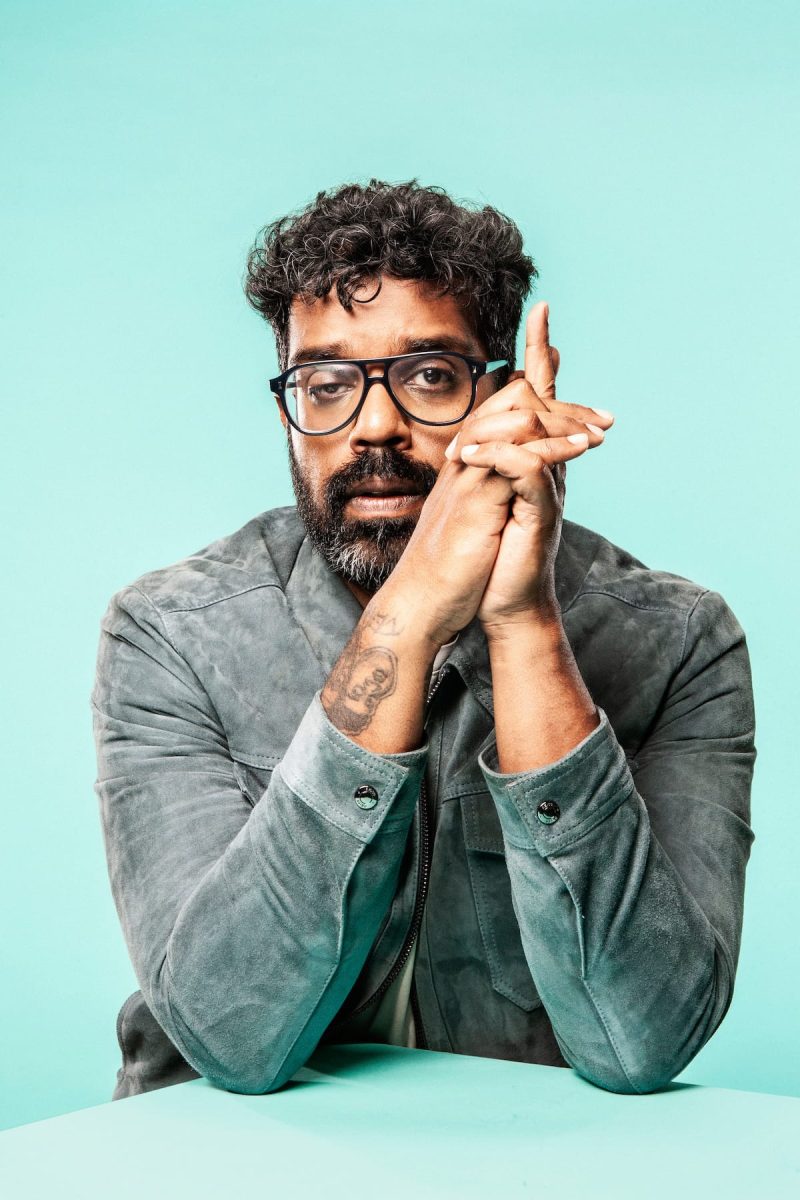“This probably won’t be worth you braving the cold tonight,” Romesh Ranganathan began at the Den Theatre, in his typical cynical and self-deprecating manner. The comment was brilliantly laced with the irony and knowledge that, of course, it would be.
The dimly lit setting of the Den Theatre and the open floor section of round, group tables, introduced a chill and conversational atmosphere. DJ Martin 2 Smoove played throwback hip-hop tracks with infectious enthusiasm before the comedian entered the stage. This familiar mood characterized the rest of the performance, during which Ranganathan made the audience feel like trusted confidantes as he flipped seamlessly from cutting reflections on life to lively anecdotes.
The stand-up show marked the introduction of Ranganathan’s Hustle tour to North America, following an extensive leg in the UK, as well as dates in Australia and New Zealand. The British comedian has garnered success across various media, starring in his own Netflix stand-up comedy special Romesh Ranganathan: The Cynic and garnering acclaim on television in shows such as The Misadventures of Romesh Ranganathan and The Ranganation. He currently hosts the podcast Wolf & Owl with fellow comic Tom Davis.
Ranganathan began his set by recapping an eventful year marked by personal firsts. One such milestone was an online political attack from actor Laurence Fox in response to Ranganathan’s involvement in a campaign encouraging men to act against misogyny. Ranganathan retaliated onstage.
The comedian then paused to reflect, “Am I really happy in life?” He conceived of the sentiment while watching Beckham, soccer player David Beckham’s self-produced documentary, during a shot of Beckham contentedly cooking a lone mushroom.
In the spirit of further introspection, Ranganathan continued with a series of honest realizations he had reached. Perhaps most poignant was the conclusion that he was two-faced: consistently polite to people’s faces and judgmental behind their backs. Ranganthan’s epiphany was not without an abundance of anecdotes. He narrated great instances of repressed anger like a forced Burger King visit in Portugal, and, without exception, every dinner party he had ever attended. Ranganathan described gatherings requiring small talk as the ultimate test of control, committing to excruciatingly banal conversation on topics such as the material of drinking glasses.
Having grown up in London, where I followed Ranganathan’s stand-up and game show appearances as part of the British audience, I was watching closely to see if he would adapt his humor to an American audience. It was refreshing to see that Ranganthan’s overall dry-witted persona remained unchanged across the pond. His use of British sarcasm was received as a comedic quirk, enlisting just as much humor in the Den Theatre as in a home crowd.
Ranganathan also made sure to share jokes based on universal phenomena, deploying sports as one such shared interest. He called soccer both a conversational lubricant and inimitable emotional spectacle, noting that there are few other scenarios where you would so vigorously celebrate someone’s loss. After a riff on podcasts that model obscenely unrealistic daily routines drew relieved laughter from the crowd, it became clear—Ranganathan is a comedian who excels in validating even international audiences.
Ranganathan’s stand-up show drew laughter with consistently grouchy remarks, delivering sharp and precise critiques of society that left the audience no choice but to loosen up. Within no time at all, the Wednesday night angst had dissipated, and we “almost felt like a Thursday night type of crowd,” the comic assured us in his final remarks.









